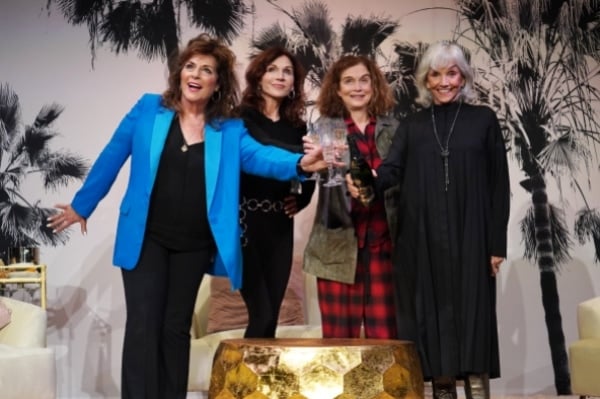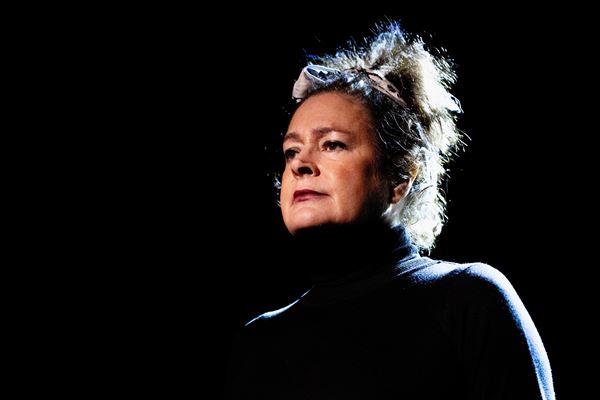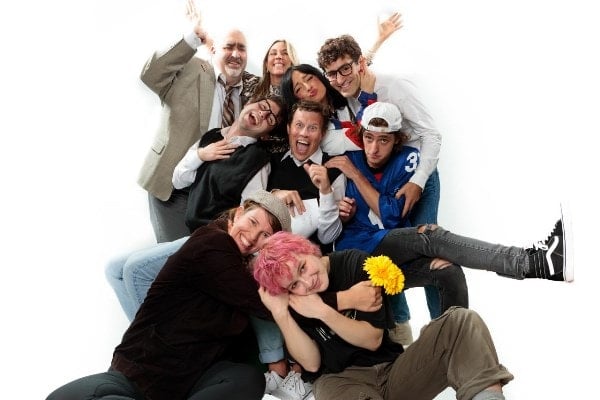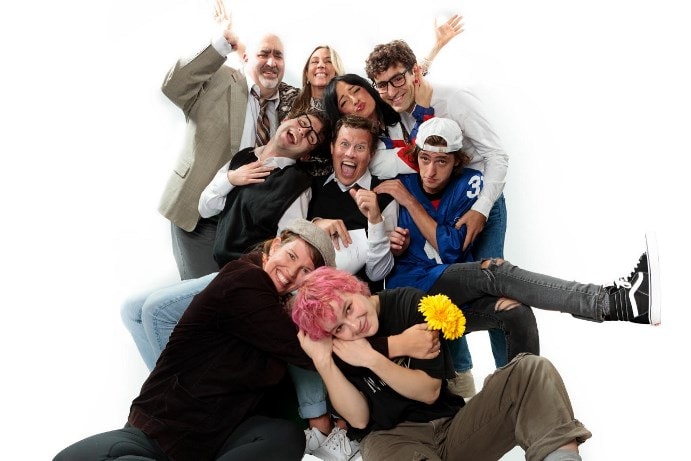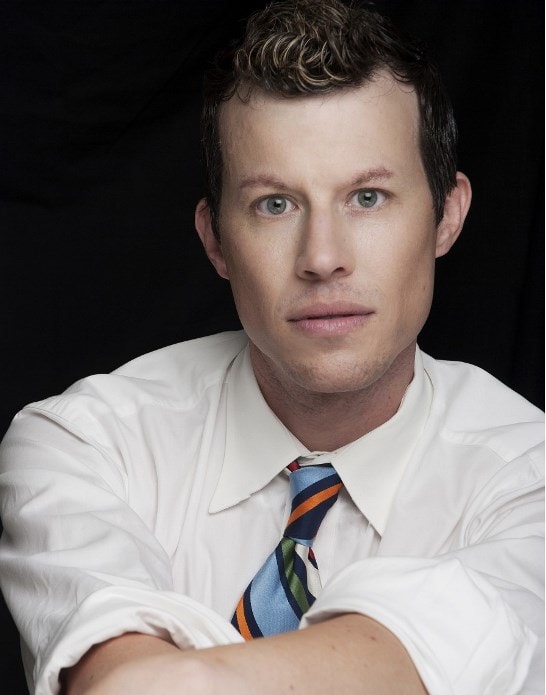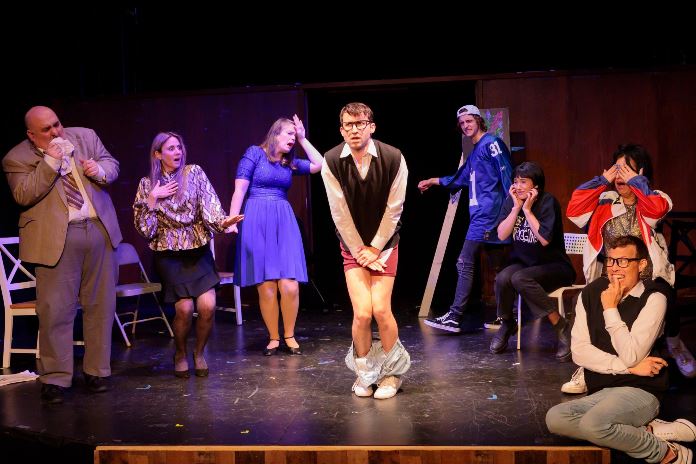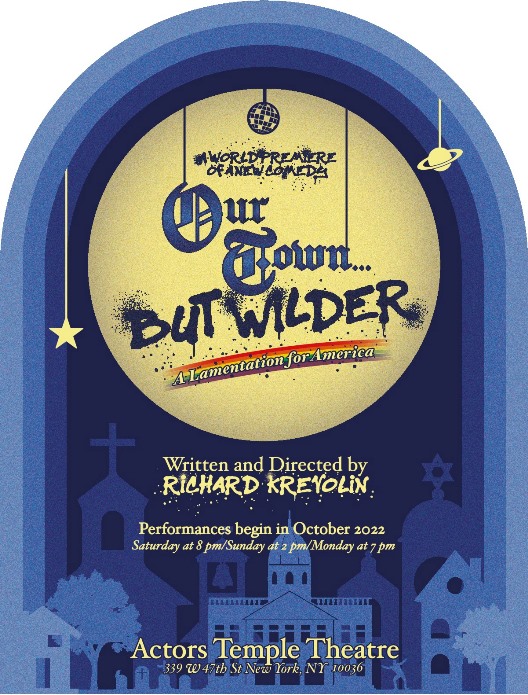When Marilyn decides to throw a surprise birthday brunch for Claudia at Jules’ sleekly furnished $10 million Brentwood home, Zoey, a successful actress-turned-Yoga-advocate who’s been living in London, shows up unexpectedly, drinks flow and personalities clash, as the four long-time friends of a certain age share their opinions, open up about their personal problems (Marilyn’s is a doozy), battle and bond, in the Off-Broadway premiere of Sandra Tsing Loh’s Madwomen of the West, playing a limited engagement at Actors Temple Theatre. Directed with no-holds-barred fervor and laughs by Tom Caruso, the meta-theatrical femalecentric comedy stars the blockbuster cast of stage and screen favorites Caroline Aaron, Brooke Adams, Marilu Henner, and Melanie Mayron as the Baby-Boomer buddies since college some 40 years ago, who offer their insights into aging, men, the next generation, life, each other, and the never-ending challenges of being a woman.
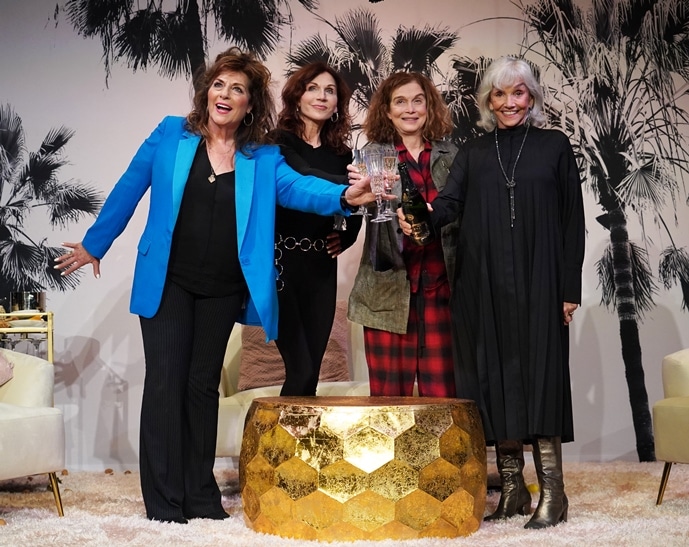
The show opens with Aaron directly addressing the audience with a story about her first introduction to the Actors Temple three decades ago by Shelley Winters (“yes that Shelley Winters”), which proves to be the first of many breaks by the cast through the fourth wall, as they shift back and forth between their roles and themselves. Loh’s characters even have many of the well-known attributes of the real-life women, including Henner’s “highly superior autobiographical memory” (HSAM) or hyperthymesia, a rare brain condition, diagnosed in less than 100 people worldwide, which enables her to remember everything that ever happened to her, with precise dates and details. They also make running jokes about the show’s low budget, supposedly (but intentionally) providing for minimal props and design elements (many of which they mime or ask us to envision). The result is a greater sense of the actresses’ personal connection to the story, its outspoken humor, and their audience of enthusiastic fans, who get all the inside jokes (except for the one about Brentwood that doesn’t hit in NYC but “would get a big laugh in LA”).
Each woman is given her moment in the spotlight, beginning with Aaron’s riotously, unapologetically feisty Marilyn, a dedicated teacher and founder of a girls’ school, who doesn’t quite understand the dramatic rise in “the trans wave” or the current use of pronouns, is cheating on her pre-diabetic sugar cleanse and is smoking again, whose retired husband is around the house too much and is getting on her nerves, and who never even tries to hide her aversion and hilarious reactions to Henner’s vain Zoey (making a grand entrance down the center aisle and striking poses throughout the show), her long absence in London and lack of contact with the close-knit group, phony British accent, or sexualized conversation and behavior (with a tour-de-force sequence of eye-rolling, head-shaking, face-covering, and accent mocking) – all setting the stage for a disastrous reunion brunch but an uproarious comedy with masterful performances.
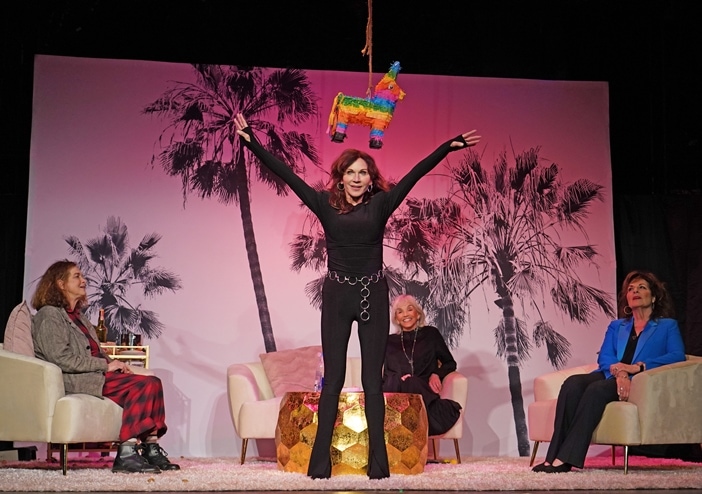
Mayron’s Claudia – a previously acclaimed but now struggling photographer who is “vaguely Jewish, vaguely lesbian . . . not the new kind, the old-fashioned kind,” hates surprise parties, is suffering from depression, and is being ghosted by her trans child JJ over an argument they had – shows up in her plaid flannel PJs and work boots and lets herself in with the key she has to Jules’ house, unaware of the planned celebration (cheaply decorated by Marilyn, though all we see is a colorful piñata hanging in the center of the room, due to the low props budget), then tries to leave once the tirades begin, but only makes it to the edge of the stage (thanks to Uber). And Brooke Adams’ Jules, called out by an angry Claudia as “passive aggressive and controlling,” is generally less forcefully combative, though she, like the others, has a couple of big reveals of her own that she’s kept beneath the surface (and in her water bottle), until she doesn’t.
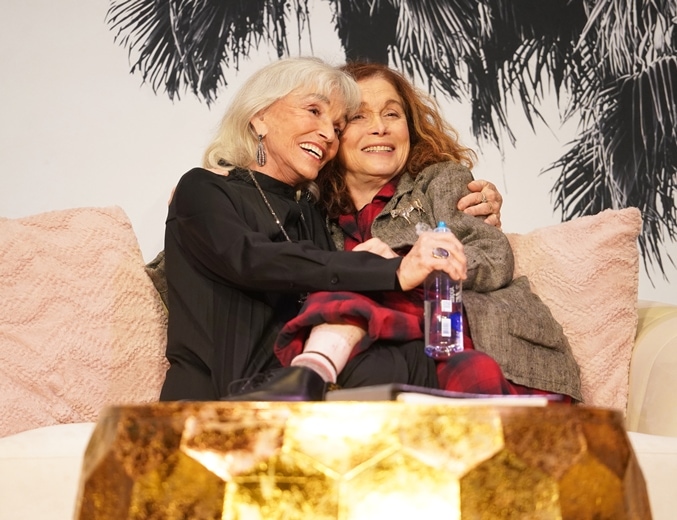
The ostensibly non-existent budget adds to the meta-theatrical gags, though the tastefully simple modern set by Christian Fleming, with a painted backdrop screen of palm trees and a rolling bar cart, efficiently set the scene in upscale Brentwood, with lighting by Pamela Kupper and sound effects by Max Silverman that surprise the cast. And the character-defining costumes did not come from their own closets, as we are told, but were well-designed by Sharon Feldstein and Erin Hirsch.
Will the friendships survive? Will these women support each other when no one else in our still sexist and ageist world does? Find out for yourself at Actors Temple, in the highly entertaining, funny, and relevant Madwomen of the West.
Running Time: Approximately one hour and 45 minutes, without intermission.
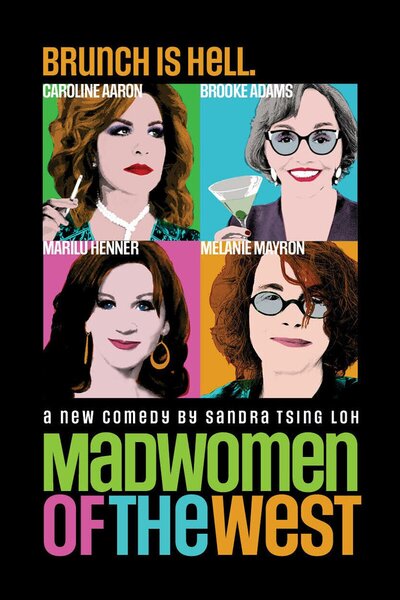
Madwomen of the West plays through Saturday, December 31, 2023, at Actors Temple Theatre, 339 West 47th Street, NYC. For tickets (priced at $48.50-130, including fees), call (212) 239-6200, or go online.
